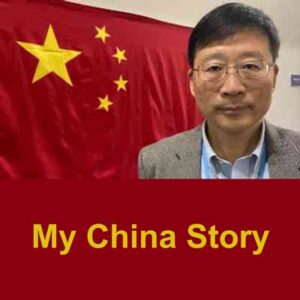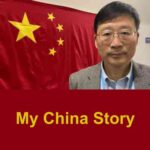My China Story as a Child
 Down the memory lane, my early childhood perception of China in the sixties (60s) was mainly about its people who to an outsider, looked very much alike whenever they appeared in group photos all dressed in fancy colourful similar clothes.
Down the memory lane, my early childhood perception of China in the sixties (60s) was mainly about its people who to an outsider, looked very much alike whenever they appeared in group photos all dressed in fancy colourful similar clothes.
That picture was however further enlarged when the school added another perspective presenting China as a huge country, so many times bigger than Uganda! We also learnt that it was the most populated in the entire world. There were also astounding revelations about its socio-economic prowess! It possessed one of the Seven Wonders of the World, i.e. THE GREAT WALL OF CHINA, a historic monument and landmark of their early civilization. Ever since China has remained a formidable force to reckon with.
We got to know that they even had their own unique way of writing not based on the English alphabet. That uniqueness was also manifested in other domains such as religion, martial art, and general lifestyle which included among other things eating with chopsticks rather than with forks! Their staple food, namely rice, was another great attraction as it proved to be a speciality among our local communities accompanying most celebrations.
However, in people’s homesteads, rice was not the only Chinese good thing to boast about. Typical among others and which has really stood the test of time was their exquisite crockery in diverse classic style! Under the bottom of every plate, cup, dish, teapot etc., stuck the famous inscription “Made in China”. That trademark also appeared on several other products e.g; matchboxes, pencils, padlocks, bicycle tyres and tubes which were always the people’s choice due to assured high quality.
My China Story as an Adult
The passing of time brought along other dimensions of my understanding of China as an influential force. In the seventies (70s), I had gained some political consciousness, both locally and internationally. China under the wise leadership of the great Chairman Mao was pursuing a different political orientation from the Western Block. Due to his visionary leadership, the country was set on the path of rapid transformation. This also translated into the acquisition of more influence on the international scene, especially among developing countries.
Under the rule of Idi Amin, Indians and many other expatriates who were working in Uganda were expelled. Chinese products and services substituted many items that had originally been procured from those countries with which diplomatic relations had by then gone sour. That is when even gymnastics, a form of martial arts gained popularity in Kampala schools. Such entertainment took the young people by storm just as did the Chinese film industry. Cinema Halls by then could only present Chinese Kung Fu movies with the likes of Bruce Lee as the starring heroes.
On a more serious note, even things such as military ware were imported from China. Incidentally, Idi Amin himself was later on ousted by a powerful joint army raised in Tanzania which we were told had received superior military training from Chinese experts.
In the eighties (80s), as a young adult, I remember attending a beginner’s French course in France where we also had some representatives from China. When we were asked to talk about our countries of origin, our Chinese counterparts proclaimed thus, “China is believed to be a sleeping lion which will rise one day and engulf the whole world.”
Indeed that prophecy has come to pass following the high spirit of patriotism and diligent hard work by both the men and the womenfolk. Since then China has gradually emerged as a superpower. Thankfully this growth is not egoistic but has benefited many developing countries, especially in Africa. It is interesting to note that, unlike other superpowers, China does not impose political bureaucracy on the beneficiary countries.
No wonder that today numerous infrastructure projects in Africa are supported by Chinese funding on very favourable terms. The Ugandan examples include Namboole Stadium, roads, bridges, power dams, hospitals and educational institutions, to mention but a few. On the other hand, Uganda businessmen who used to import goods from various countries, have now made China their one-stop centre. Inversely Chinese entrepreneurs have also made significant investments here.
The cordial relationship between our two countries has also been enjoyed in other areas such as culture, tourism, sports, agriculture, etc. Exchange programs have promoted free mingling and provided lots of people opportunities to enhance their careers.
Under the reign of the current strong leader Xi Jinping, China is today developing at supersonic speed in this ever-changing world. Incidentally, it has in many instances even proved to be the game-changer. As an industrial hub, China produces so many products ranging from razor blades to spacecraft and everything in between. You cannot, by the way, leave out their irresistible cuisine that is remarkably present in almost every major town globally offering lots of tantalizing delicacies.
The Chinese have also come out to share with the rest of the world, the secrets of the longevity of their people. Their natural products including foodstuffs, beverages, medicines and special therapy are mushrooming all over.
Even the Chinese language is steadily spreading its wings across the globe. Uganda is no exception and although so far just a few institutions have taken it up, certainly more will come on board in due course.
Conclusion
All in all, China has already economically overtaken many developed countries and is poised for greater horizons. I envisage that in just a matter of a few years to come, China will be declared the number one superpower. Their focus is now on the total eradication of poverty among all their citizens. Its ultra-modern cities coupled with the state of the art industries and infrastructure today puts China in an enviable position on the world map.
As our relationship also keeps growing stronger by the day, we look forward to greater prospects. Long live our fraternity!

 FRANCIS X.G. LUYERA
FRANCIS X.G. LUYERA










0 Comments